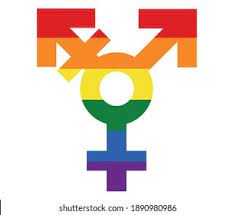Estrogen is often associated with femininity, but its importance goes far beyond that. This hormone plays a crucial role in various bodily functions, affecting everything from bone density to mood. As women age, especially during perimenopause and menopause, estrogen levels can fluctuate significantly, leading to a range of symptoms that may be uncomfortable or even concerning. Understanding the signs of low estrogen can empower women to take charge of their health and seek the necessary support.
In this article, we’ll delve into the vital role of estrogen, explore the common signs of low levels, and discuss when it’s time to consult your doctor. Whether you’re experiencing mood swings, sleep disturbances, or noticeable physical changes, recognizing these symptoms is the first step toward achieving hormonal balance.Define Cisgender WomanCan Trans People Have SexBest Over The Counter Hormone Balance
What Is Estrogen and Why Is It Important for Women?
Estrogen is a group of hormones primarily produced in the ovaries, although it can also be synthesized in smaller amounts by the adrenal glands and fat tissues. This essential hormone plays a vital role in regulating the menstrual cycle, supporting reproductive health, and maintaining bone density. Furthermore, estrogen influences skin health, cardiovascular function, and cognitive abilities, making it indispensable for overall well-being.
As women age, particularly during perimenopause and menopause, estrogen production decreases. This reduction can lead to various health issues, including increased risk of osteoporosis, cardiovascular problems, and even weight gain. It’s crucial for women to understand the importance of maintaining healthy estrogen levels to support their physical and mental health.
Common Symptoms of Low Estrogen Levels You Should Know
Women experiencing low estrogen levels may notice several symptoms that can significantly affect their quality of life. Common signs include irregular menstrual cycles, hot flashes, and night sweats. These symptoms can be quite disruptive, often leading to discomfort during daily activities and affecting sleep quality. Additionally, low estrogen can contribute to vaginal dryness, which might impact intimacy and personal relationships.
Beyond these physical symptoms, low estrogen can lead to more subtle signs that are sometimes overlooked. Fatigue, decreased libido, and even memory lapses can occur when estrogen levels drop. Being aware of these signs is essential for women to recognize when their bodies may be signaling an imbalance and to take appropriate action.
Mood Swings: When Hormones Take You on a Rollercoaster
Hormones can have a significant impact on mood, and estrogen is no exception. Low estrogen levels are often linked to increased irritability, anxiety, and mood swings, making it feel like you’re on an emotional rollercoaster. Many women report feeling more sensitive or experiencing heightened emotional responses during times of hormonal fluctuations.
These mood changes can be frustrating, especially if they disrupt daily life or relationships. Understanding that these emotional swings are hormone-related can help women approach their feelings with compassion and seek support when necessary. Whether through therapy, lifestyle changes, or medical intervention, there are ways to manage mood swings effectively.
Physical Changes: What Your Body Might Be Telling You
When estrogen levels drop, women may notice various physical changes that can be alarming. One common sign is weight gain, particularly around the abdomen. This can occur because estrogen helps regulate body fat distribution. With lower levels, fat can accumulate in ways it didn’t before, which can be frustrating and lead to self-esteem issues.
In addition, women may experience changes in skin elasticity and texture, leading to more noticeable wrinkles or dryness. Hair thinning or loss can also occur as estrogen helps maintain healthy hair growth. Recognizing these physical changes as potential signs of low estrogen can help women take proactive steps to address their health concerns.
Sleep Trouble? Low Estrogen Could Be the Culprit!
For many women, low estrogen levels can lead to sleep disturbances, including insomnia or difficulty staying asleep. This is often exacerbated by other symptoms like hot flashes and night sweats, which can make it challenging to find restful sleep. Poor sleep quality can have a domino effect, impacting mood, energy levels, and overall health.
If you find yourself waking up multiple times during the night or struggling to fall asleep, it’s worth considering your hormonal health. Improving your sleep environment, practicing good sleep hygiene, and addressing any underlying hormonal issues with your doctor can help restore restful nights and improve your overall well-being.
Understanding Your Menstrual Cycle and Estrogen Levels
A woman’s menstrual cycle is closely tied to estrogen levels. Typically, estrogen rises during the first half of the cycle, peaking just before ovulation, then dropping if pregnancy doesn’t occur. Irregular or missed periods can signal low estrogen levels, which may be a sign of hormonal imbalance. Understanding your cycle can provide insight into your overall hormonal health.
Tracking your menstrual cycle can help identify patterns that may indicate low estrogen, such as unusually short or long cycles, or drastic changes in flow. By keeping a record, you can better discuss your symptoms with your healthcare provider, making it easier to pinpoint potential issues and appropriate treatments.
The Role of Diet and Lifestyle in Estrogen Balance
Diet and lifestyle choices can significantly influence estrogen levels. Foods rich in phytoestrogens, like soy products, flaxseeds, and legumes, can help balance hormone levels naturally. Additionally, a diet high in fruits, vegetables, and whole grains can support overall health and hormonal balance. Staying hydrated and limiting processed foods and sugars can also make a difference.
Exercise plays a crucial role in maintaining hormonal balance as well. Regular physical activity helps manage weight and reduce stress, both of which can positively impact estrogen levels. Incorporating strength training, cardiovascular workouts, and mindfulness practices like yoga can create a holistic approach to achieving hormonal health.
When to Seek Help: Talk to Your Doctor About Estrogen
If you suspect that you might be experiencing symptoms of low estrogen, it’s essential to talk to your healthcare provider. They can conduct tests to measure your hormone levels and help determine the best course of action. Bringing a list of your symptoms, concerns, and any changes you’ve noticed can facilitate a more productive conversation.
Remember that seeking help is a proactive step towards managing your health. Whether it’s lifestyle changes, hormone replacement therapy, or other treatments, your doctor can help you find the right approach tailored to your individual needs.
Understanding the signs of low estrogen is key to maintaining your health and well-being as a woman. By recognizing the symptoms and knowing when to seek help, you can take control of your hormonal health and make informed decisions about your body. Remember, you’re not alone in this journey, and seeking support from friends, family, or healthcare professionals can be incredibly beneficial. Empower yourself with knowledge and take charge of your health!


